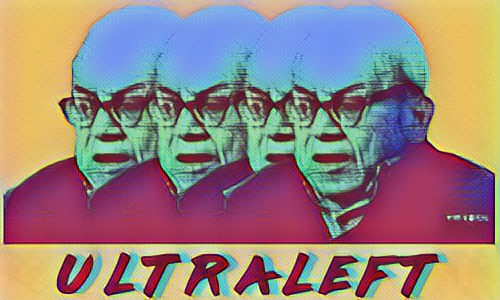From Multiverse to Ecological Enlightenment
Multiversalism includes dismantling an idea from its supremacy, privileging, or idolatry. This analysis may pose as a vastly troubling proposition as all our thought is exposed as false dualities. But this is not a nihilistic point that everything is without intrinsic value but rather a point about the intermingling of a multiverse of values that are interconnected and dynamic. “Truly, all we know of good and duty proceeds from nature; but none the less so all we know of evil… nature is all plasticity and indifference – a moral multiverse, as one might call it,” wrote James in coining his neologism. Which brings us to one of the critical polarities that a moral multiverse calls into question, which is that of nature and humanity. Transcending this dualism leads to ecological enlightenment. What we attain is a radical pluralism which is a synthesis of acentrism and concentrism as well as a transcendence of dualism.
 |
| Acentrism (Nothing, Zero, Nihilism) |
 |
| Concentrism (Holism, Monism, Oneness) |
 |
| Dualism |
 |
| Dualism |
 |
| Multiversalism |
 |
| Multiversalism |
What we have are a multiverse of things, ideas, realities, values. Multiversalism is the coexistence and coevolution of a multiplicity of values. In every choice is a moral decision but every option involves a sacrifice of some good. As William James explains "there is always a pinch between the ideal and the actual which can only be got through by leaving part of the ideal behind." The hope is that we can live more intelligently within these tensions. Multiversalism empowers and liberates the individual to balance the multiplicity of moral choices. Out of the creative destruction of sacrifice one chooses the values in which life is forged.
This attainment of multiversality is particularly needed in nature and culture discourses in light of the Ecological Age - or the Anthropocene Epoch. At the onset of such a critical shift in the relationship between nature and humanity, multiversalism embodies an attempt to see beyond our tendency to conclude clear solutions to our complex problems. As stated by a multiverse theorist, David Deutsch's Law proceeds: (1) Problems are inevitable, (2) Problems are soluble, (3) Solutions lead to more problems. With multiversalism we come to understand that our problems are complex but solvable by way of our re-imagining of our kaleidoscopic realities. With what values will we grapple with to attain ecological enlightenment? Our questions will be answered, perhaps with the help of William James' philosophy of pragmatism.





Comments
Post a Comment